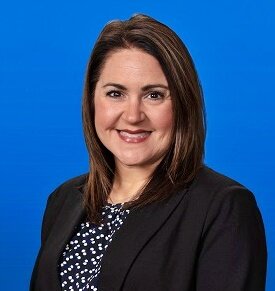Commentary: Floridians Lose When It Comes to Public Health Advice
This time of year, health journalists typically write stories focusing on the upcoming cold and flu season. We ask about predictions for various respiratory illness outbreaks and detail changes in this year’s vaccine recommendations, as the Fernandina Observer did in two stories this month - https://fernandinaobserver.com/stories/updated-covid-19-vaccine-now-available,31540? and https://fernandinaobserver.com/stories/besides-covid-19-three-vaccines-you-may-need-now,32307?
During my four decades as a health writer, I have found public health departments to be reliable and helpful sources of information. But when I sought comment and information from the Nassau County branch of the Florida Department of Health for those stories, I hit a wall. I’m writing this commentary to explain why that is a problem — not just for me but for all of us.
Public health is a distinct field in the health sciences arena. Public health officials are concerned with the health of populations, rather than individuals. Infectious respiratory diseases, sexually transmitted diseases, contaminated drinking water and air pollution are problems that impact communities. Many public health officials work in federal, state and county health departments. We, the taxpayers, fund those departments.
Public health officials are charged with protecting our common good. Local and state public health departments were on the front lines for the issuance of the first polio vaccines in 1955. They were the experts who sounded the alarm when the first cases of HIV emerged in 1981. They were central to shifting public perception regarding the harms of smoking. In the spring of 2021, the Nassau County public health office rolled out an exemplary COVID-19 vaccination program.
Essential to the role of public health officials is to educate. That’s why I reached out to Nassau County health officer Cara Gluck, who holds a master’s degree in public health, in August to seek information on this year’s efforts to combat COVID-19, flu and respiratory syncytial virus. I sought Gluck’s viewpoint on the ongoing COVID-19 threat and information on any specific county services or resources related to infectious respiratory viruses.
After weeks of trying to reach Gluck — and with the assistance of the helpful Nassau County public information officer — Gluck emailed me to say she couldn’t speak to the media without clearance from the Florida State Department of Health. She did not offer to seek that clearance. She advised me to look for information on the Florida Department of Health website.
That leads to another problem. The Florida Department of Health is managed by Dr. Joseph A. Ladapo, who is not a trusted source on respiratory illnesses, vaccines or COVID-19. Appointed by Gov. Ron DeSantis in 2021, Ladapo has been admonished by numerous national scientific organizations and experts for controversial, unsubstantiated and misleading views on the value of vaccinations. Late last year, he challenged the U.S. Food and Drug Administration on the safety of mRNA COVID-19 vaccines stating, without evidence, that the vaccines may deliver “contaminated DNA into human cells.”
He has gone on to advise against COVID-19 vaccination for healthy children despite the CDC evidence that the vaccines protect against hospitalization and death in children, as they do in adults.
And, according to reporting by Politico, Ladapo personally altered a state study on COVID-19 vaccines in 2022 to imply that the vaccine presented higher health risks to young men compared to other studies on that issue.
His advice during a measles outbreak in Broward County earlier this year also earned widespread reproach from medical experts. Ladapo urged parents of children who are unvaccinated against measles to decide for themselves whether their children should attend school during the outbreak. Longstanding public health advice is to keep unvaccinated children home from school during outbreaks of the highly contagious and potentially dangerous disease.
At our core, journalists function as representatives of the public, seeking relevant information on behalf of the citizenry and communicating that information as clearly and accurately as possible. Most public health departments understand the role of the media and work closely with journalists. When public officials turn away reasonable media requests or disseminate false information, taxpayers should question what they’re even paying for.
This is especially true right now for Nassau County residents. At the state level, we get misinformation. At the local level, we get no information.
We deserve better.






